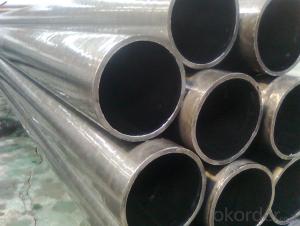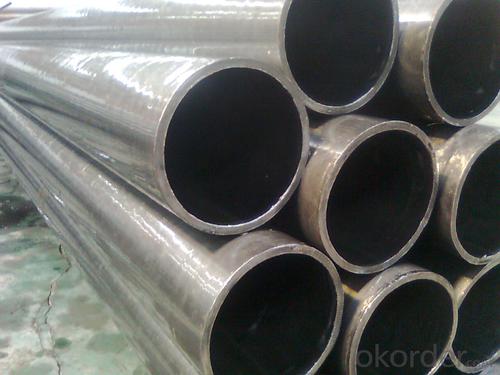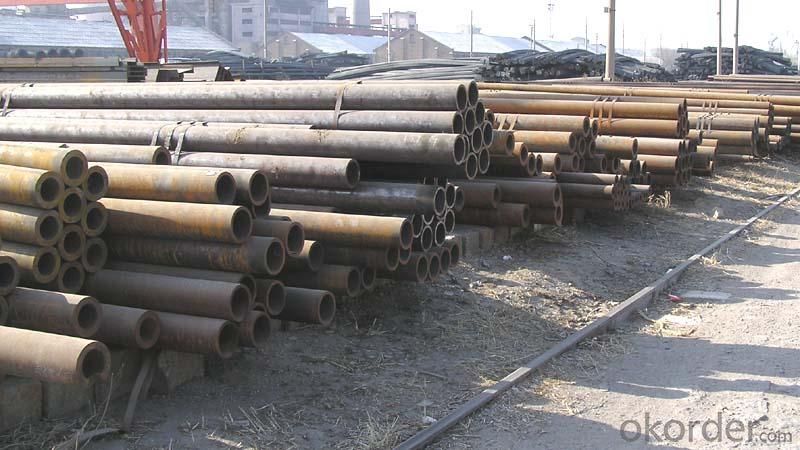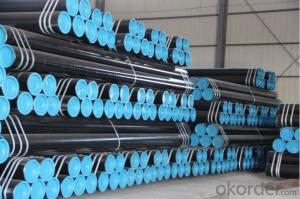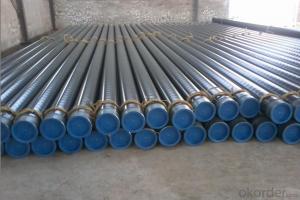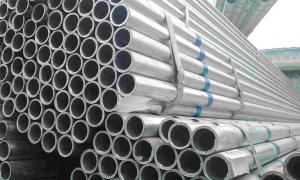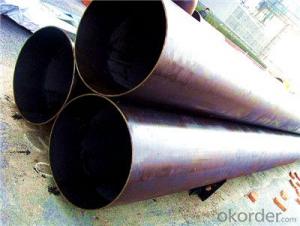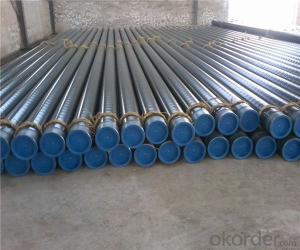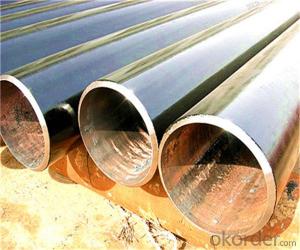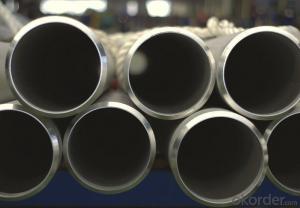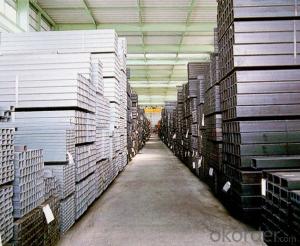Alloy Seamless Steel Pipe with high quality from factory
- Loading Port:
- Tianjin
- Payment Terms:
- TT OR LC
- Min Order Qty:
- 50 m.t.
- Supply Capability:
- 200000000 m.t./month
OKorder Service Pledge
OKorder Financial Service
You Might Also Like
PRODUCT DETAILS
1.Structure of Seamless Steel Pipe Description:
A large amount of Seamless Steel Pipes is offered to the clients at cost effective rates. These pipes are extremely durable, resistant to corrosion and have high tensile strength. Our pipes are used in nuclear plants, power plants, refineries and construction industry across the country. Furthermore, we are capable of providing these seamless pipes to the clients in bulk quantity.
2.Main Features of the Steel Pipe:
• High manufacturing accuracy
• High strength
• Small inertia resistance
• Strong heat dissipation ability
• Good visual effect
•Reasonable price
3.Packaging & Delivery:
| Packaging Details: | Seaworthy packages, bundles wrapped with strong steel strip |
| Delivery Detail: | 15-30 days after received 30% TT |
4.Seamless Steel Pipe Specification:
| Standard: | GB, DIN, ASTM,ASME, ASTM A106-2006, ASTM A53-2007 |
| Grade: | 10#,20#, 45#, 16Mn |
Thickness: | 8 - 33 mm |
| Section Shape: | Round |
| Outer Diameter: | 133 - 219 mm |
| Place of Origin: | Shandong, China (Mainland) |
| Secondary Or Not: | Non-secondary |
| Application: | Hydraulic Pipe |
| Technique: | Cold Drawn |
| Certification: | API |
| Surface Treatment: | factory state or painted black |
| Special Pipe: | API Pipe |
| Alloy Or Not: | Non-alloy |
| Length: | 5-12M |
| Outer Diameter: | 21.3-610mm |
5.Product pictures
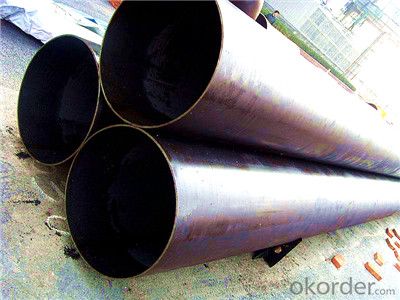
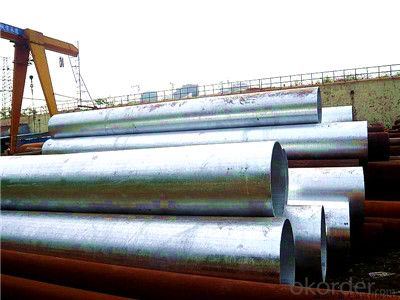
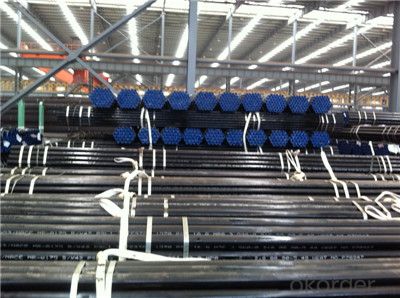
5.FAQ of Seamless steel pipe:
①How is the quality of your products?
Our products are manufactured strictly according to national and internaional standard, and we take a test
on every pipe before delivered out. If you want see our quality certifications and all kinds of testing report, please just ask us for it.
Guaranteed: If products’ quality don’t accord to discription as we give or the promise before you place order, we promise 100% refund.
②How about price?
Yes, we are factory and be able to give you lowest price below market one, and we have a policy that “ for saving time and absolutely honest business attitude, we quote as lowest as possible for any customer, and discount can be given according to quantity”,if you like bargain and factory price is not low enough as you think, just don’t waste your time.Please trust the quotation we would give you, it is professional one.
③Why should you chose us?
Chose happens because of quality, then price, We can give you both.Additionally, we can also offer professional products inquiry, products knowledge train(for agents), smooth goods delivery, exellent customer solution proposals.Our service formula: good quality+good price+good service=customer’s trust.
SGS test is available, customer inspection before shipping is welcome, third party inspection is no problem.
Any question, pls feel free to contact us !
- Q: Can steel pipes be used for roller coaster tracks?
- Yes, steel pipes can be used for roller coaster tracks. Steel is a commonly used material for roller coaster tracks due to its strength, durability, and ability to withstand intense forces and high speeds.
- Q: What is the difference between hot dip galvanized steel pipe and galvanized steel pipe?
- Galvanized steel pipe is commonly known as "cold plated tube", using electroplating process, only galvanized steel pipe in the outer wall, the wall of the pipe is not galvanizedHot dip galvanized steel pipe adopts hot-dip galvanizing process, and the inner and outer walls of the steel pipe have zinc coating.
- Q: What is the difference between ERW (Electric Resistance Welded) and LSAW (Longitudinal Submerged Arc Welded) steel pipes?
- ERW steel pipes are manufactured by high-frequency electrical currents passing through the metal, resulting in a welded joint. On the other hand, LSAW steel pipes are produced by submerging a metal plate into a welding zone, creating a welded joint through the use of a welding arc. The main difference lies in the welding process, with ERW pipes being more suitable for small to medium-sized diameters, while LSAW pipes are commonly used for larger diameter and thicker-walled applications.
- Q: How are steel pipes used in the construction of nuclear power plants?
- Steel pipes are used in the construction of nuclear power plants for various purposes, such as transporting and containing fluids and gases, including coolant, steam, and compressed air. They are specifically chosen for their high strength, durability, and resistance to heat and pressure. Steel pipes are used in the construction of primary and secondary cooling systems, reactor vessels, and other critical components, ensuring the safe and efficient operation of nuclear power plants.
- Q: How do steel pipes resist corrosion?
- Steel pipes resist corrosion through a process called passivation, where a protective layer of chromium oxide forms on the surface of the steel, preventing direct contact with corrosive elements and slowing down the oxidation process. Additionally, steel pipes can be coated with protective layers such as zinc or epoxy to provide an extra barrier against corrosion.
- Q: Can steel pipes be used for offshore applications?
- Steel pipes are suitable for offshore applications. They are commonly employed in offshore industries due to their durability, strength, and resistance to corrosion. In offshore settings, such as oil and gas exploration, drilling, production, and fluid and gas transportation, steel pipes are frequently necessary. These pipes are specifically designed to endure harsh and corrosive conditions found offshore, which include exposure to saltwater, extreme temperatures, and high pressure. Moreover, steel pipes can be manufactured to meet specific requirements for offshore projects, guaranteeing safety and dependability in terms of size, thickness, and material grade. In summary, steel pipes are a dependable and extensively utilized option for offshore applications.
- Q: How are steel pipes used in the construction of airports?
- Steel pipes are used in the construction of airports for various purposes such as drainage systems, fuel pipelines, water supply networks, and structural support for buildings and runways.
- Q: What is the difference between steel pipes and concrete-lined pipes?
- The main difference between steel pipes and concrete-lined pipes lies in their composition and structural properties. Steel pipes are primarily made of steel, which provides strength, durability, and resistance to corrosion. On the other hand, concrete-lined pipes are steel pipes that have been coated with a layer of concrete. This concrete lining adds an extra layer of protection against corrosion and also provides additional structural stability. Concrete-lined pipes are commonly used in applications where protection against corrosion and abrasion is crucial, such as in water distribution systems or sewage pipelines. In contrast, steel pipes are often used in various industries where strength and durability are vital, such as oil and gas pipelines or structural applications.
- Q: How are steel pipes used in the manufacturing of desalination plants?
- Steel pipes are used in the manufacturing of desalination plants to transport the seawater from the intake point to the treatment facilities. These pipes are durable, corrosion-resistant, and can withstand the high-pressure conditions required for the desalination process.
- Q: How are steel pipes protected against electromagnetic interference?
- Steel pipes can be protected against electromagnetic interference by using various techniques such as applying electromagnetic shielding coatings, implementing grounding measures, using insulating materials, and employing electromagnetic interference filters or suppressors. These methods help to minimize the impact of external electromagnetic fields on the steel pipes, ensuring their integrity and functionality.
Send your message to us
Alloy Seamless Steel Pipe with high quality from factory
- Loading Port:
- Tianjin
- Payment Terms:
- TT OR LC
- Min Order Qty:
- 50 m.t.
- Supply Capability:
- 200000000 m.t./month
OKorder Service Pledge
OKorder Financial Service
Similar products
Hot products
Hot Searches
Related keywords
